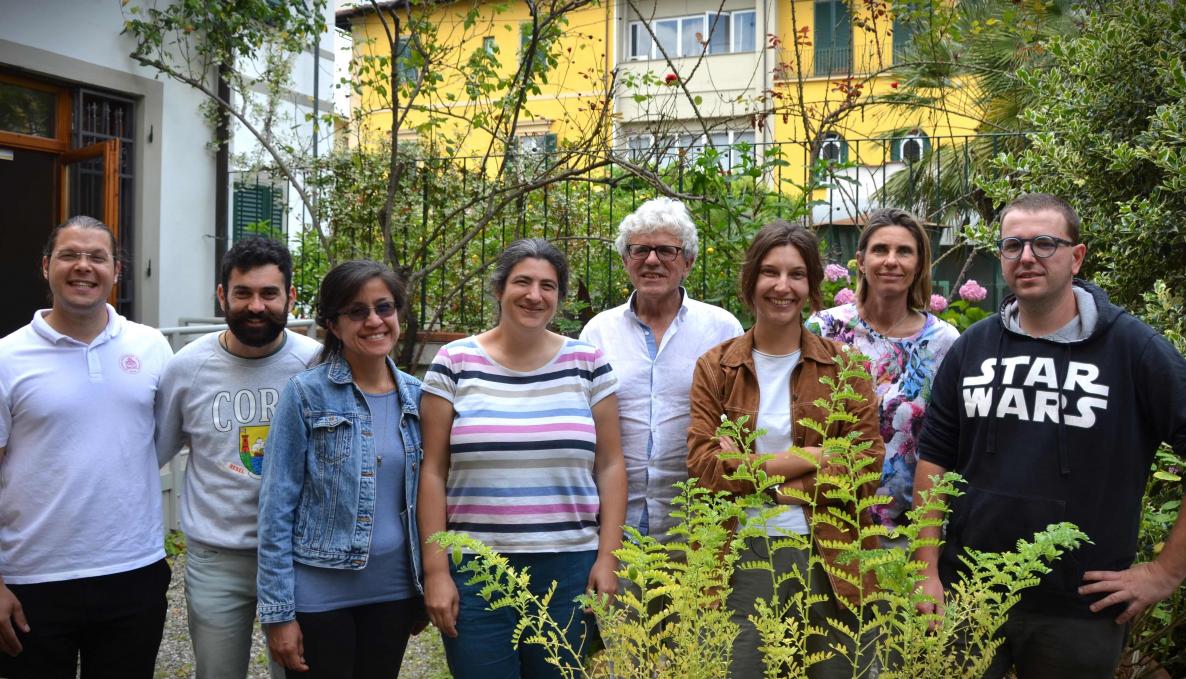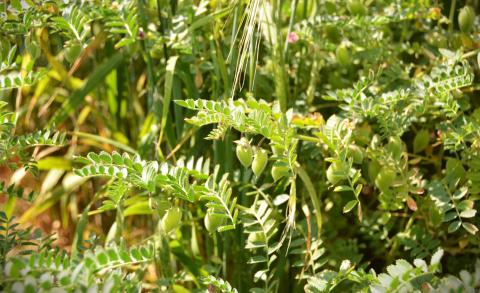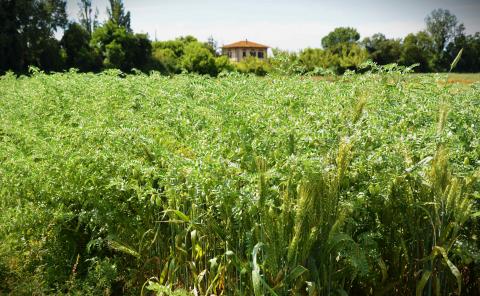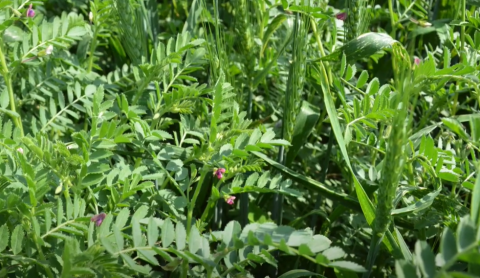Innovative approaches in agriculture: Europe needs to increase plant protein production. Sant'Anna School's contribution in the LEG-ITA project to improve grain legume production stability in Italy as well
Involved in the project is a research team from the Agroecology Group of the Institute of Plant Sciences, coordinated by Camilla Moonen, associate professor of agronomy and herbaceous crops. Growing more legumes means contributing to the ecological transition and making agricultural systems and food styles more sustainable

In Europe, the agricultural area used for the cultivation of grain legumes (such as beans, broad beans, peas, chickpeas, lentils, chickling peas and lupins) is very limited compared to other geographical areas: it stands at under 5 percent, making the EU poorly self-sufficient in vegetable protein production. To contribute to the increase of these crops, the Sant'Anna School, with the research group coordinated by Anna Camilla Moonen, associate professor of agronomy and herbaceous cultivation at the Institute of Plant Sciences, is participating in the LEG- ITA project for "Innovative approaches in the study of yield and yield stability in grain legumes in Italian cropping systems", a two-year study funded by the Ministry of University and Research-European Union on PRIN 2022 funds.
The goal of the project is to identify key factors influencing the yield stability of grain legumes, thus providing valuable support to farmers, technical advisors and other agribusiness stakeholders. Despite the growing interest in legumes-which are considered valuable tools for achieving the ecological transition and making agricultural systems and food styles more sustainable, increasingly favoring supplementary or alternative plant protein sources to animal protein-the area used for their cultivation is very limited to date. The reasons for farmers' preference for other crops are complex and distributed throughout the agri-food supply chain: prominent among them is the problem of low yield stability over time. Increasing the yield stability of grain legumes has been identified as the key factor in both incentivizing the introduction of grain legumes into crop rotations and preventing further replacement of these crops where they are still present.
The Plant Science Institute's working group, composed of associate professor Anna Camilla Moonen, Federico Leoni and Marco Esposito, both research fellows, and Alessandro Triacca and Gabriele Nerucci, both Ph.D. students, will collect data on the cultural practices used in growing grain legumes, their growing conditions and the parameters that influence their yield, both in university experimental fields and on farms. This will make it possible to determine the main factors influencing agronomic yields and to identify possible interactions between the agronomic practices used and the growing environment from a climatic and soil perspective.
The LEG- ITA project for "Innovative Approaches in the Study of Yield and Yield Stability in Grain Legumes in Italian Cropping Systems" is coordinated by Elisa Marraccini, associate professor of agronomy and herbaceous and horticultural systems at the Department of Agri-Food, Environmental and Animal Sciences at the University of Udine, who, together with the group of researchers from the Scuola Superiore Sant'Anna, will engage in research on the factors causing yield instability in chickpea (Cicer arietinum L. ) and in selecting agroecological management practices capable of improving yield stability.
In the cover from left: Marco Esposito, Gabriele Nerucci, Gabriela Alandria, Elisa Maraccini, Gemini delle Vedove, Alessandra Virili, Camilla Moonen and Daniel Marusig.






